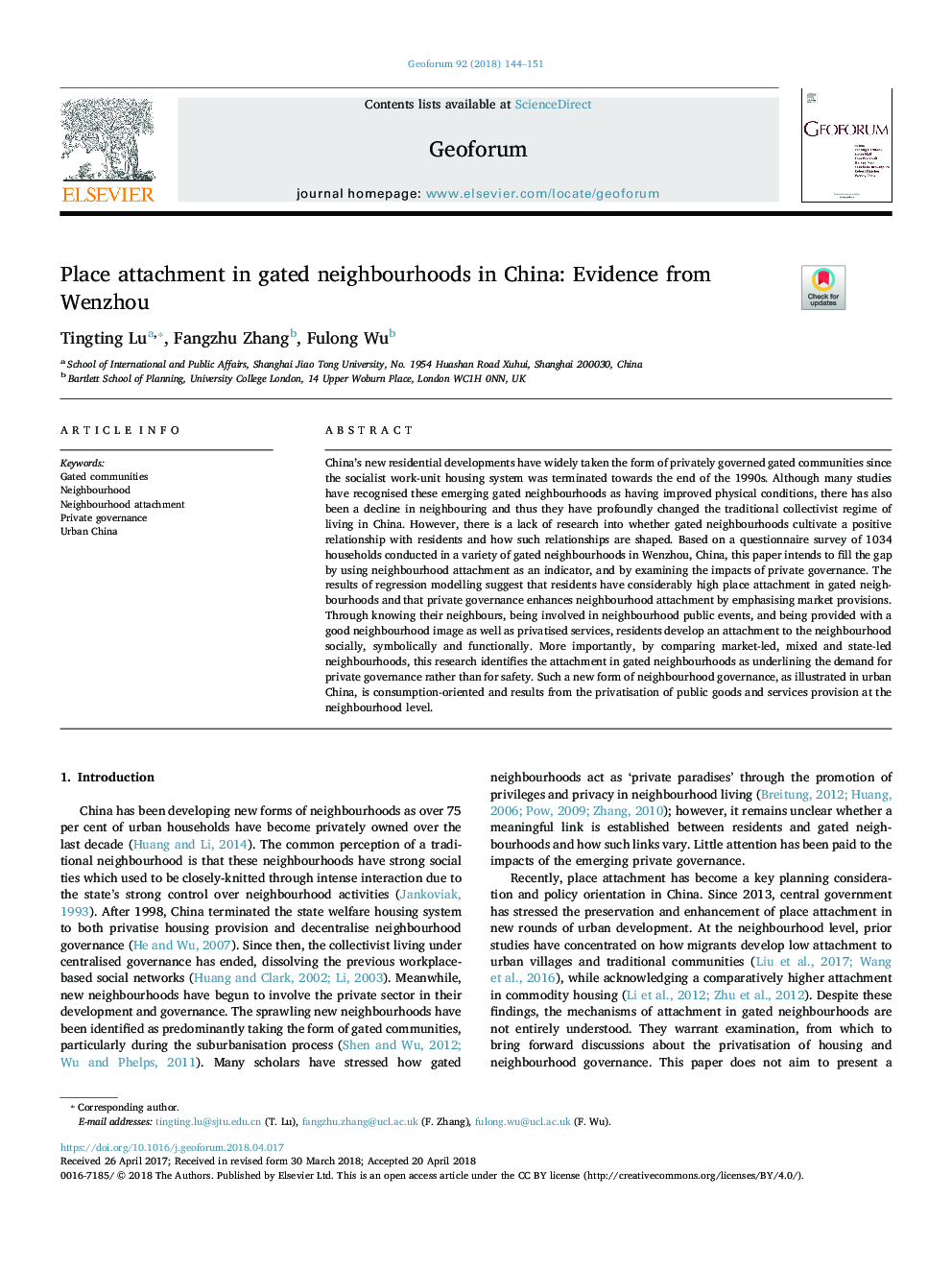| Article ID | Journal | Published Year | Pages | File Type |
|---|---|---|---|---|
| 7353561 | Geoforum | 2018 | 8 Pages |
Abstract
China's new residential developments have widely taken the form of privately governed gated communities since the socialist work-unit housing system was terminated towards the end of the 1990s. Although many studies have recognised these emerging gated neighbourhoods as having improved physical conditions, there has also been a decline in neighbouring and thus they have profoundly changed the traditional collectivist regime of living in China. However, there is a lack of research into whether gated neighbourhoods cultivate a positive relationship with residents and how such relationships are shaped. Based on a questionnaire survey of 1034 households conducted in a variety of gated neighbourhoods in Wenzhou, China, this paper intends to fill the gap by using neighbourhood attachment as an indicator, and by examining the impacts of private governance. The results of regression modelling suggest that residents have considerably high place attachment in gated neighbourhoods and that private governance enhances neighbourhood attachment by emphasising market provisions. Through knowing their neighbours, being involved in neighbourhood public events, and being provided with a good neighbourhood image as well as privatised services, residents develop an attachment to the neighbourhood socially, symbolically and functionally. More importantly, by comparing market-led, mixed and state-led neighbourhoods, this research identifies the attachment in gated neighbourhoods as underlining the demand for private governance rather than for safety. Such a new form of neighbourhood governance, as illustrated in urban China, is consumption-oriented and results from the privatisation of public goods and services provision at the neighbourhood level.
Related Topics
Social Sciences and Humanities
Economics, Econometrics and Finance
Economics and Econometrics
Authors
Tingting Lu, Fangzhu Zhang, Fulong Wu,
